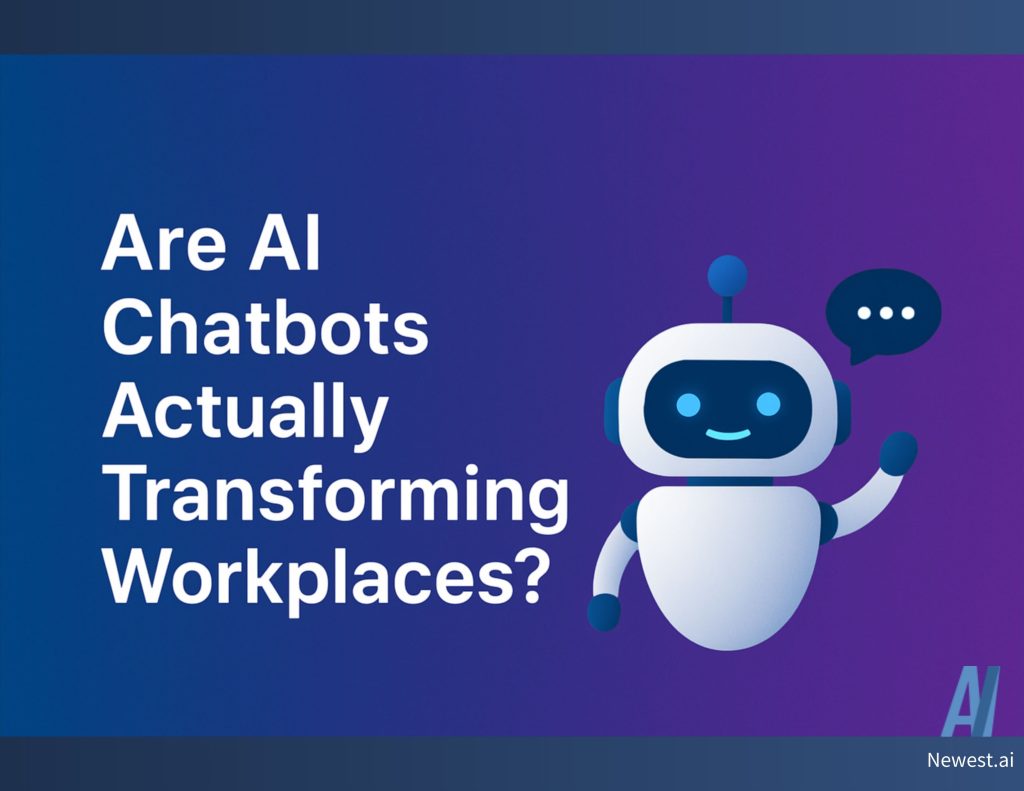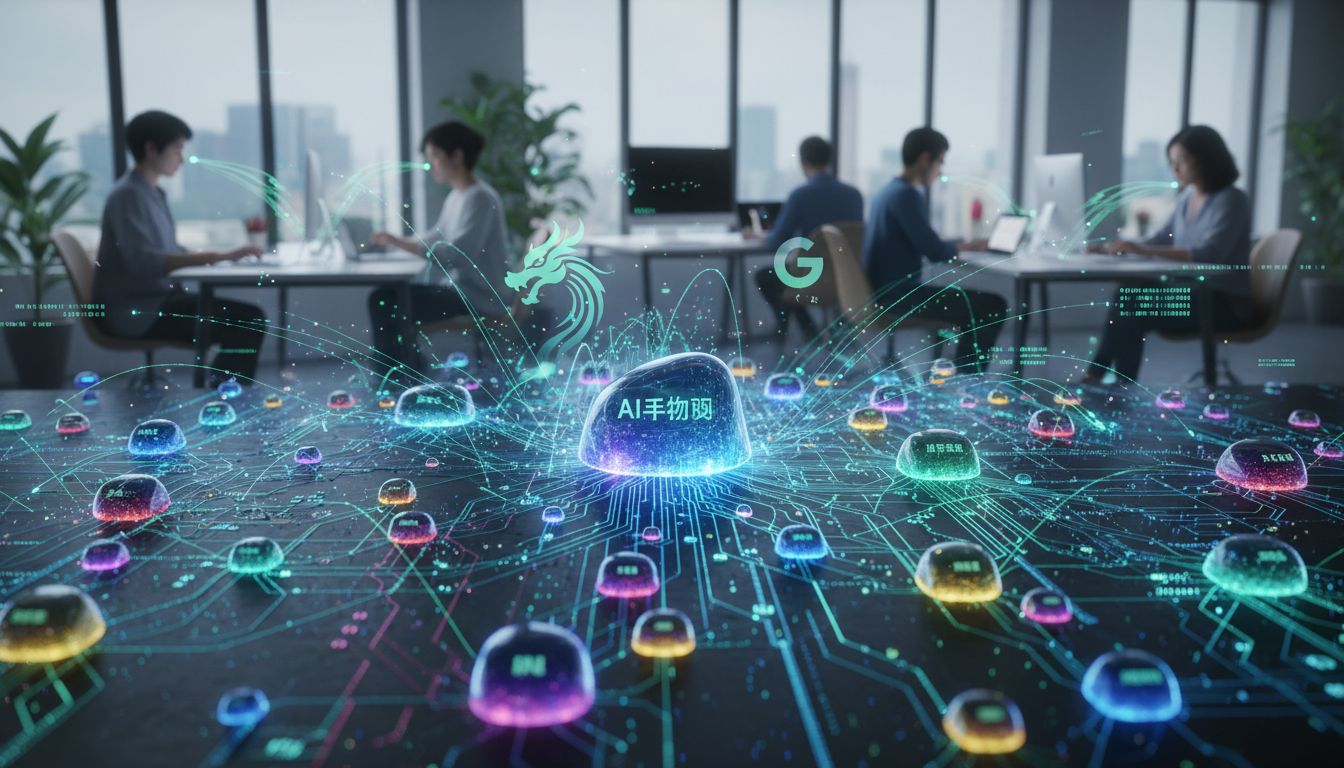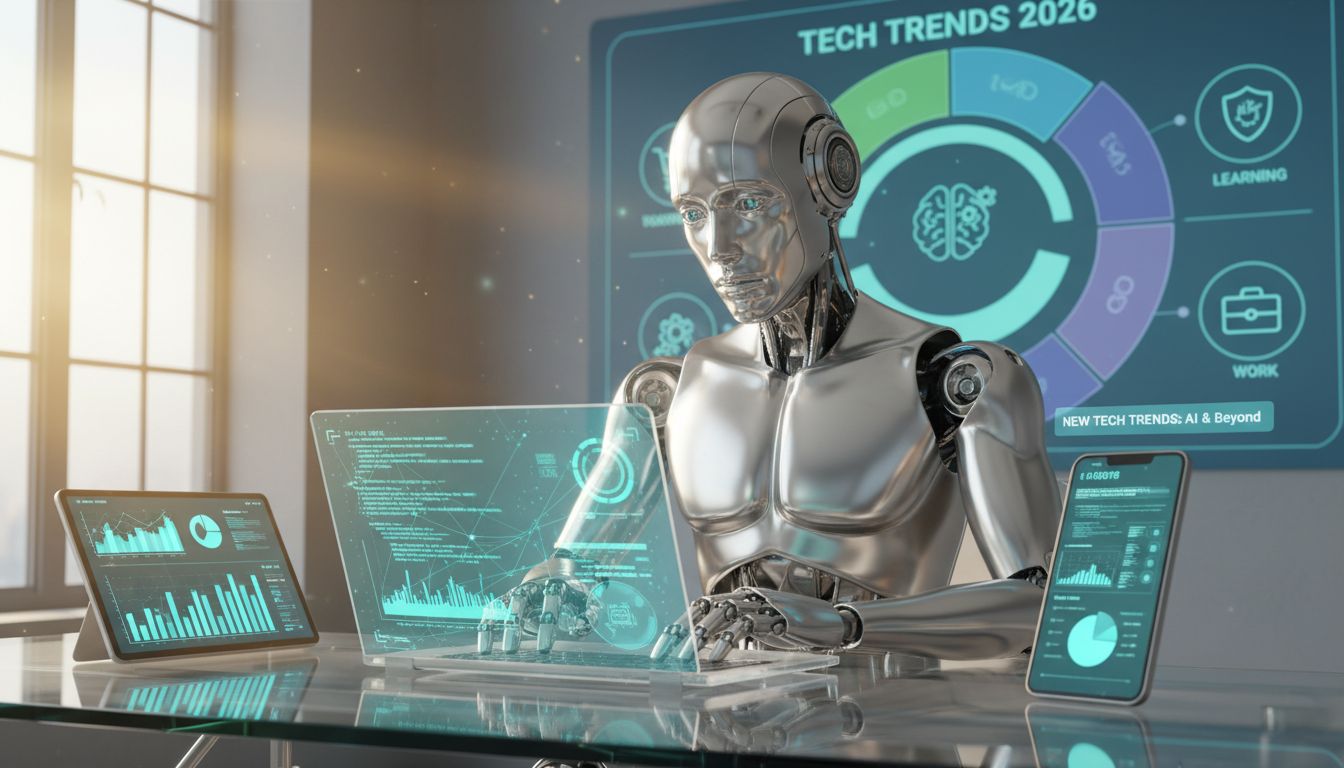
- Introduction
- Enhancing Productivity with AI Chatbots
- Streamlining Customer Support
- Boosting Employee Engagement
- Driving Innovation Across Industries
- Improving Decision-Making with Data
- Supporting Remote and Hybrid Work
- Enhancing Workplace Collaboration
- Personalizing Employee Experiences
- Scaling Business Operations
- Fostering Continuous Learning
- Strengthening Cybersecurity
- Promoting Work-Life Balance
- Building Trust in AI Technology
- The Road Ahead for AI Chatbots
Introduction
The world of work is evolving rapidly, and AI chatbots are at the heart of this exciting transformation. These intelligent tools are not just technological novelties; they are powerful allies that enhance productivity, streamline processes, and foster creativity across industries. From small startups to global enterprises, they are proving to be game-changers, offering solutions that make work more efficient and enjoyable. Their ability to handle repetitive tasks, provide instant responses, and integrate seamlessly into workflows is reshaping how we approach our daily responsibilities. Consequently, businesses and employees alike are embracing these tools with enthusiasm, eager to unlock their full potential.
Moreover, chatbots are democratizing access to advanced technology, enabling organizations of all sizes to thrive. By automating mundane tasks, they free up time for employees to focus on strategic, creative, and interpersonal work. This shift is fostering a more dynamic workplace where innovation flourishes. Additionally, chatbots are enhancing customer experiences, delivering personalized support at scale, and driving business growth. As a result, the integration is not just a trend but a cornerstone of modern work, promising a brighter, more efficient future.
Enhancing Productivity with AI Chatbots
AI based chatbots are revolutionizing productivity by automating repetitive tasks that once consumed valuable time. For instance, they can schedule meetings, manage emails, and handle data entry with remarkable speed and accuracy. This automation allows employees to focus on high-value tasks that require critical thinking and creativity. Furthermore, chatbots operate 24/7, ensuring that work progresses even outside regular hours. Their tireless efficiency is a boon for businesses aiming to stay competitive in a fast-paced world.
Equally important, they integrate seamlessly with existing tools like Slack, Microsoft Teams, and CRM systems. This compatibility enhances collaboration and streamlines communication across teams. By providing instant access to information and automating routine queries, chatbots reduce downtime and keep projects on track. Consequently, employees report feeling less overwhelmed and more empowered to contribute meaningfully. The positive impact on workplace morale is undeniable, as workers enjoy a more balanced and fulfilling workday.

Streamlining Customer Support
In customer service, the chatbots are delivering exceptional results by providing fast, personalized support. They handle inquiries about order statuses, product details, and troubleshooting with ease, delighting customers with quick responses. Unlike human agents, chatbots can manage thousands of conversations simultaneously, ensuring no customer is left waiting. Moreover, their ability to learn from interactions means they continually improve, offering more accurate and tailored assistance over time. This scalability is transforming customer support into a seamless, efficient operation.
Additionally, chatbots are available around the clock, catering to customers in different time zones. This global accessibility strengthens brand loyalty and boosts satisfaction rates. By resolving routine issues, chatbots free up human agents to tackle complex problems, creating a balanced and effective support system. As a result, businesses are seeing higher customer retention and positive feedback. The enthusiasm for AI-driven support is growing, as companies recognize its potential to elevate service standards.
Boosting Employee Engagement
AI chatbots are not just tools for efficiency; they are catalysts for employee engagement and satisfaction. By handling administrative tasks, they give workers more time to collaborate and innovate. For example, chatbots can provide instant answers to HR-related questions about benefits or policies, reducing frustration and empowering employees. This accessibility fosters a sense of support and inclusion within the workplace. Consequently, employees feel valued and motivated to contribute their best ideas.
Furthermore, chatbots can deliver personalized learning and development opportunities. They recommend training modules, track progress, and provide feedback, helping employees grow in their roles. This focus on professional development is a key driver of job satisfaction. By creating a supportive and engaging environment, the are helping companies build stronger, more committed teams. The positive ripple effects are evident as workplaces become hubs of creativity and collaboration.

Driving Innovation Across Industries
Chatbots are sparking innovation by enabling businesses to experiment with new ideas and processes. In industries like healthcare, they assist with patient scheduling and triage, improving access to care. Similarly, in retail, chatbots enhance shopping experiences by offering personalized product recommendations. These applications demonstrate the versatility in solving industry-specific challenges. As a result, companies are discovering new ways to differentiate themselves in competitive markets.
Moreover, chatbots are accelerating research and development by providing data insights and automating analysis. For instance, they can sift through vast datasets to identify trends, enabling faster decision-making. This capability is particularly valuable in fields like finance and marketing, where timely insights drive success. By fostering a culture of innovation, chatbots are helping businesses stay ahead of the curve. The excitement surrounding their potential is palpable as industries embrace a future of endless possibilities.
Improving Decision-Making with Data
AI chatbots are empowering organizations with data-driven decision-making, a critical advantage in today’s competitive landscape. They analyze large volumes of data quickly, providing actionable insights in real time. For example, chatbots can generate reports on sales trends or customer behavior, helping managers make informed choices. This speed and accuracy enhance strategic planning and operational efficiency. Consequently, businesses are better equipped to respond to market changes with confidence.
Additionally, chatbots integrate with analytics platforms, ensuring seamless access to key metrics. They can answer complex queries about performance or forecasts, reducing the need for manual analysis. This accessibility democratizes data, enabling employees at all levels to contribute to decision-making. As a result, organizations are fostering a culture of transparency and agility. The enthusiasm for data-driven workplaces is growing, as they unlock new opportunities for success.
Supporting Remote and Hybrid Work
The rise of remote and hybrid work has highlighted the value in maintaining connectivity. They facilitate seamless communication by bridging gaps between distributed teams. For instance, chatbots can coordinate schedules, share updates, and manage tasks across time zones. This ensures that remote workers remain aligned with company goals. Moreover, their accessibility fosters a sense of community, even in virtual settings.
Furthermore, chatbots enhance remote onboarding and training, making it easier for new hires to integrate. They provide instant access to resources and answer questions in real time, reducing the learning curve. This support is invaluable for maintaining productivity in flexible work environments. As a result, companies are embracing chatbots as essential tools for the modern workforce. The positive impact of remote work is clear, as teams thrive in dynamic, connected workplaces.
Enhancing Workplace Collaboration
Collaboration is at the heart of successful organizations, and AI chatbots are making it easier than ever. They streamline project management by assigning tasks, tracking progress, and sending reminders. This keeps teams aligned and focused on shared goals. Additionally, chatbots can summarize discussions and highlight action items, ensuring nothing falls through the cracks. Their role in fostering teamwork is transforming how projects are executed.
Equally important, chatbots encourage cross-departmental collaboration by connecting employees with relevant expertise. For example, they can suggest colleagues for specific tasks based on skills or past contributions. This builds stronger networks within organizations, driving innovation and efficiency. By creating a collaborative culture, they are helping teams achieve more together. The excitement around enhanced teamwork is evident, as businesses celebrate newfound synergies.

Personalizing Employee Experiences
AI chatbots are personalizing the employee experience, making workplaces more inclusive and supportive. They adapt to individual preferences, delivering tailored recommendations for tasks or learning opportunities. For instance, a chatbot might suggest a specific workflow based on an employee’s role or habits. This personalization enhances productivity and job satisfaction. Moreover, it shows employees that their unique needs are valued.
Additionally, chatbots provide real-time feedback and recognition, boosting morale and motivation. They can celebrate milestones, such as project completions, with personalized messages. This fosters a positive work environment where employees feel appreciated. By prioritizing individual experiences, they are transforming workplace dynamics. The enthusiasm for personalized support is growing, as companies see the benefits of engaged, happy teams.
Scaling Business Operations
For businesses aiming to scale, AI are indispensable partners in growth. They handle increased workloads without requiring additional staff, saving time and resources. For example, chatbots can process orders, manage inventory, and respond to customer inquiries at scale. This efficiency allows companies to expand operations seamlessly. Furthermore, their cost-effectiveness makes them accessible to businesses of all sizes.
Moreover, chatbots provide insights into operational bottlenecks, helping businesses optimize processes. They can identify patterns in customer behavior or supply chain issues, enabling proactive solutions. This adaptability is key to sustaining growth in competitive markets. As a result, companies are leveraging chatbots to achieve ambitious goals with confidence. The optimism surrounding scalable operations is infectious, as businesses embrace a future of limitless potential.
Fostering Continuous Learning
AI chatbots are transforming workplaces into hubs of continuous learning and growth. They deliver on-demand training resources, quizzes, and tutorials tailored to employees’ needs. This accessibility ensures that workers can upskill at their own pace. For instance, a chatbot might guide an employee through a new software tool step-by-step. Such support is invaluable in fast-evolving industries.
Furthermore, chatbots track learning progress and suggest next steps, creating a structured development path. They can also gamify learning with challenges and rewards, making it engaging and fun. This approach boosts participation and retention of knowledge. By fostering a culture of learning, they are preparing workforces for future challenges. The excitement for lifelong learning is palpable, as employees embrace opportunities to grow.

Strengthening Cybersecurity
In an era of increasing cyber threats, chatbots are bolstering workplace security with intelligent solutions. They monitor systems for suspicious activity, flagging potential risks in real time. For example, a chatbot can detect unusual login attempts and alert IT teams instantly. This proactive approach minimizes vulnerabilities and protects sensitive data. Consequently, businesses can operate with greater confidence.
Additionally, chatbots educate employees about cybersecurity best practices through interactive training. They simulate phishing attacks or provide tips on creating strong passwords, raising awareness. This empowers workers to contribute to a secure environment. By integrating security into daily operations, they are safeguarding organizations effectively. The optimism for safer workplaces is evident, as companies embrace these protective tools.
Promoting Work-Life Balance
This technology is helping employees achieve better work-life balance by reducing administrative burdens. They automate tasks like expense reporting or time tracking, freeing up personal time. This efficiency allows workers to disconnect after hours, reducing burnout. For instance, a chatbot can handle last-minute scheduling changes seamlessly. Such support is transforming how employees manage their workloads.
Moreover, chatbots offer wellness resources, such as mindfulness exercises or stress management tips. They can remind employees to take breaks or suggest healthy habits, promoting overall well-being. This focus on balance creates happier, more productive teams. As a result, companies are seeing lower turnover and higher engagement. The enthusiasm for balanced workplaces is growing, as chatbots pave the way for healthier work environments.
Building Trust in AI Technology
As AI becomes integral to work, building trust in their capabilities is essential. They are designed with transparency, providing clear explanations for their actions. For example, a chatbot might outline how it prioritizes tasks or sources information. This openness fosters confidence among users. Furthermore, their consistent accuracy builds reliability over time.
Additionally, chatbots are programmed to respect privacy and comply with data regulations. They handle sensitive information securely, reassuring employees and customers alike. This commitment to ethics strengthens trust in AI adoption. By prioritizing transparency and security, chatbots are becoming trusted partners in the workplace. The optimism for ethical AI is widespread, as organizations embrace its transformative potential.
The Road Ahead for AI Chatbots
Looking ahead, the future of AI chatbots in the workplace is filled with promise. Advancements in natural language processing will make them even more intuitive and conversational. For instance, they’ll understand context better, offering more relevant responses. This evolution will deepen their integration into daily workflows. Consequently, businesses will unlock new levels of efficiency and innovation.
Moreover, as AI technology becomes more accessible, small businesses will benefit alongside large enterprises. Chatbots will continue to democratize innovation, leveling the playing field. Their ability to adapt to diverse industries ensures widespread impact. The excitement for what lies ahead is contagious, as they lead the charge toward a brighter, more connected world of work.






